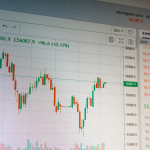The Australian stock market is highly sensitive to domestic and global economic developments. Investors closely monitor economic events in Australia to gauge their potential impact on the Australian Securities Exchange (ASX). Understanding how economic indicators influence stock market movements can help investors make informed decisions and mitigate risks effectively.
The Role of Economic Events in Shaping the ASX
Economic events in Australia, such as interest rate decisions, inflation reports, and employment data, play a significant role in shaping investor sentiment and market trends. These events provide insights into the overall health of the economy, influencing stock prices, sector performance, and investment strategies.
For instance, when the Reserve Bank of Australia (RBA) announces interest rate hikes to curb inflation, the stock market response in Australia is often negative, especially for sectors reliant on borrowing, such as real estate and consumer discretionary stocks. Conversely, rate cuts typically boost market confidence, encouraging investment in growth stocks.
How Do Interest Rate Changes Affect the Australian Stock Market?
Interest rate changes are one of the most influential economic events in Australia. When the RBA raises interest rates, borrowing becomes more expensive, reducing consumer spending and corporate investments. This can lead to lower stock prices, particularly in interest-sensitive sectors such as real estate and utilities. On the other hand, lower interest rates encourage borrowing and spending, often resulting in stock market gains, especially for growth stocks and high-dividend-yield companies.
What Economic Events Have the Most Significant Impact on ASX Performance?
Several key economic events significantly influence the ASX:
- Interest Rate Decisions – Changes in the cash rate directly affect stock valuations and investor sentiment.
- Inflation Reports – High inflation erodes purchasing power, leading to market volatility.
- Employment Data – Strong job reports boost market confidence, while rising unemployment can trigger sell-offs.
- Trade Balance Figures – A strong trade surplus benefits the market, particularly for resource-based industries.
- Government Budgets and Policies – Fiscal policies, taxation changes, and infrastructure spending can create sector-wide movements.
ASX Impact of Economic News
ASX market news often revolves around key economic announcements that trigger fluctuations in stock prices. Major economic indicators in Australia include GDP growth rates, consumer confidence indices, and trade balance figures. Each of these elements contributes to the broader outlook of the economy and influences market trends.
For example, a strong GDP report signals economic expansion, leading to increased investor optimism and stock market gains. On the other hand, weak economic data can result in sell-offs, especially in cyclical industries such as retail and construction. The ASX impact of economic news is particularly pronounced in sectors that are directly affected by government policies and global trade conditions.
How Do Global Events Like Trade Wars Affect the Australian Stock Market?
Global economic events have a significant impact on ASX performance. Trade wars, for instance, can disrupt supply chains and impact Australian exports, particularly in sectors like mining and agriculture. When global economic uncertainty rises, investors tend to shift towards safe-haven assets, often leading to a decline in equity markets. Currency fluctuations also play a role, as a weaker Australian dollar can benefit export-driven companies but hurt import-reliant industries.
What Role Does Inflation Play in the Australian Stock Market?
Inflation is a crucial economic indicator in Australia that affects market performance. When inflation rises, the cost of goods and services increases, leading to reduced consumer spending. In response, the RBA may raise interest rates to control inflation, which can negatively impact stock prices. However, moderate inflation is often seen as a sign of economic growth, benefiting certain sectors like commodities and consumer staples.
How Economic Indicators Affect Market Volatility
Economic indicators in Australia serve as crucial benchmarks for investors seeking to understand market direction. Key indicators such as inflation rates, employment statistics, and business confidence surveys provide valuable insights into economic performance and its potential impact on stock prices.
One notable example is the release of employment figures. If job growth exceeds expectations, consumer spending is likely to increase, benefiting retail and financial stocks. However, if unemployment rises, the stock market response in Australia may be negative, as it indicates economic weakness and reduced consumer purchasing power.
How Can I Stay Informed About Economic Events Impacting the ASX?
Staying informed about economic events in Australia is essential for making timely investment decisions. Here are some ways to keep track of market-moving news:
- Follow the RBA Announcements – Interest rate decisions provide critical insights into future market movements.
- Monitor Economic Reports – Regularly check reports on inflation, GDP, and employment data.
- Stay Updated with ASX Market News – Leading financial news platforms and the ASX website offer daily updates.
- Use Market Analysis Tools – Platforms like Bloomberg, Reuters, and trading apps provide real-time insights.
- Engage with Investment Communities – Following expert analyses and discussions on financial forums can provide deeper market perspectives.
Investor Strategies Amid Economic Uncertainty
Investors who keep a close eye on ASX market news can adjust their portfolios based on economic developments. During periods of economic uncertainty, defensive stocks—such as utilities and healthcare—tend to perform better due to their stable demand. Meanwhile, in times of economic growth, growth-oriented sectors like technology and industrials may offer higher returns.
Understanding the stock market response in Australia to various economic events can help investors build resilient portfolios. Diversification, risk management, and staying informed about economic indicators in Australia are key to navigating market fluctuations effectively.
Conclusion
Economic events in Australia play a critical role in shaping the performance of the ASX. Investors who stay informed about economic indicators, central bank policies, and global financial trends can make better investment decisions. By analyzing ASX impact economic news and anticipating stock market responses, investors can navigate the complexities of the financial markets and capitalize on emerging opportunities.
Disclaimer:
Pristine Gaze Pty Ltd trading as Pristine Gaze (ABN 66 680 815 678) and (ACN 680 815 678) is a Corporate Authorised Representative (CAR No. 001312049) of Alpha Securities Pty Ltd (AFSL 330757). The information provided is general information only. Any advice is general advice only. No consideration has been given or will be given to individual objectives, financial situation, or specific needs of any particular person or organisation. The decision to engage our services and the method selected is a personal decision and involves inherent risks, and you must undertake your own investigations and obtain independent advice regarding suitability for your circumstances. Past performance, examples, or projections are not indicative of future results. While we strive to provide accurate information, we make no guarantees regarding the accuracy or completeness of our materials. The website may also contain links to third-party websites or resources, for which Pristine Gaze is not responsible. All content and intellectual property on the Pristine Gaze website, including but not limited to text, graphics, logos, and images, are the property of Pristine Gaze and are protected by applicable copyright and trademark laws. By accessing or using the Pristine Gaze website, you acknowledge and agree to the terms of this disclaimer. Please read our Terms and Conditions, Privacy Policy and Financial Service Guide for further information. Please read our Terms and Conditions, Privacy Policy and Financial Service Guide for further information.





